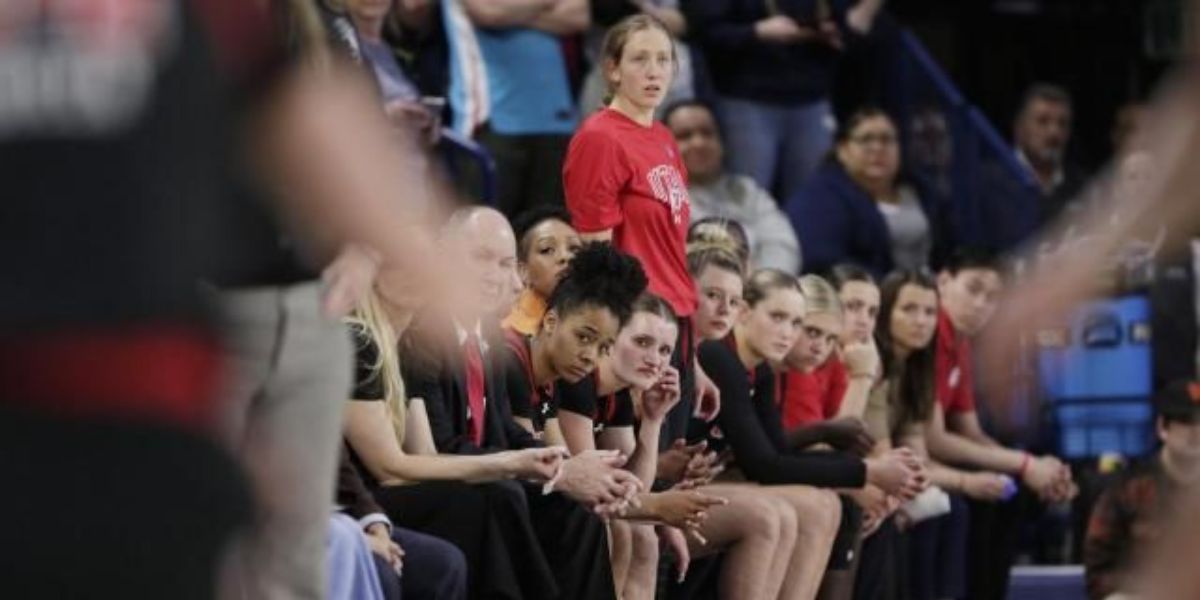University of Utah Basketball Team Target of Slurs, No Hate Crime Charges to Follow
BOISE, Idaho – A northern Idaho prosecutor will not file hate crime charges against an 18-year-old accused of yelling a racist insult at Utah women’s basketball players during the NCAA Tournament.
The deputy attorney for the city of Coeur d’Alene made the announcement on Monday, writing in a charging decision document that, while the use of the slur was “detestable” and “incredibly offensive,” there was no evidence that the man was threatening physical harm to the women or their property. That implies the behavior is protected by the First Amendment and cannot be prosecuted under Idaho’s malicious harassment legislation, Ryan Hunter wrote.
The University of Utah basketball team slept at a Coeur d’Alene motel in March while competing in the NCAA Tournament in neighboring Spokane, Washington. Team members were walking from a hotel to a restaurant when they reported that a truck pulled up and the driver hurled a racist term at them. After the team exited the restaurant, the same driver returned and was “reinforced by others,” revving their engines and yelling at the players again, according to Tony Stewart, an official with the Kootenai County Task Force on Human Relations, who spoke at a news conference shortly after the incident.
The incidents were so upsetting that Utah coach Lynne Roberts expressed concern for the group’s safety a few days later.
Far-right radicals have been present in the region for many years. The Southern Poverty Law Center reported that at least nine hate groups operated in Spokane and northern Idaho in 2018.
“We had several instances of some kind of racial hate crimes toward our program and (it was) incredibly upsetting for all of us,” said Roberts. “It’s startling in our culture, especially in athletics and at universities. There is so much diversity on a college campus, and you are just not exposed to it very often.”
University of Utah administrators declined to comment on the prosecutor’s decision on Wednesday.
Hunter stated in the decision statement that officers questioned roughly two dozen witnesses and reviewed hours of security video. Several credible witnesses reported hearing a racist epithet screamed at the group as they walked to dinner, but their descriptions of the vehicle and the person shouting the slur differed, and police were unable to hear any audio of the yelling on security videos.
There was also no evidence to link the incident before the crew arrived at the restaurant to what transpired after they left, Hunter wrote. Nonetheless, police were able to identify the passengers of a silver passenger vehicle engaged in the second incident, and one of them — an 18-year-old high school student — apparently confessed to hurling a slur and an obscene phrase at the group, Hunter said.
Prosecutors considered charging the man with malicious harassment, disorderly conduct, or disturbing the peace, but found there was insufficient evidence to support any of the allegations.
That’s because Idaho’s hate crime law only criminalizes racial harassment if it’s done with the purpose to threaten or physically harm someone or their property. Hunter stated that the individual who shouted the epithet told police that he did it because he thought it was hilarious.
“Setting aside the rank absurdity of that claim and the abjectly disgusting thought process required to believe it would be humorous to say something that abhorrent,” it weakens the assumption that the guy intended to frighten and harass, Hunter said.
The inflammatory comments also failed to meet the requirements of Idaho’s disorderly conduct and disturbing the peace regulations, which govern when and where noise or rowdy behavior occurs. The slurs were screamed on a busy road in the early evening, so the volume was typical for the time and location.
Hunter stated that his office shares the indignation caused by the man’s “abhorrently racist and misogynistic statement, and we join in unequivocally condemning that statement and the use of a racial slur in this case, or in any circumstance.” However, under existing legislation, that cannot serve as the foundation for criminal prosecution in this case.
Even hateful or unpleasant communication is protected by the First Amendment, according to Aaron Terr, public advocacy director of the Foundation for Individual Rights and Expression, which promotes free speech and thought.
“While this occasionally requires us to hear speech we dislike, it is a fundamental concept because the only other option is for the government to decide when speech is too unpleasant. “That is a subjective judgment, and it would allow the government to arbitrarily suppress views it does not like,” Terr stated.
Terr stated that there are only a few exceptions to the First Amendment, but they are restricted and firmly defined.
“For example the First Amendment doesn’t protect true threats, which are statements expressing a serious intent to cause physical harm to an individual or to place them in fear of physical harm,” Terr stated. “Incitement is also unprotected, but to qualify as incitement, the speech must be intended to and likely to cause immediate unlawful action.”











